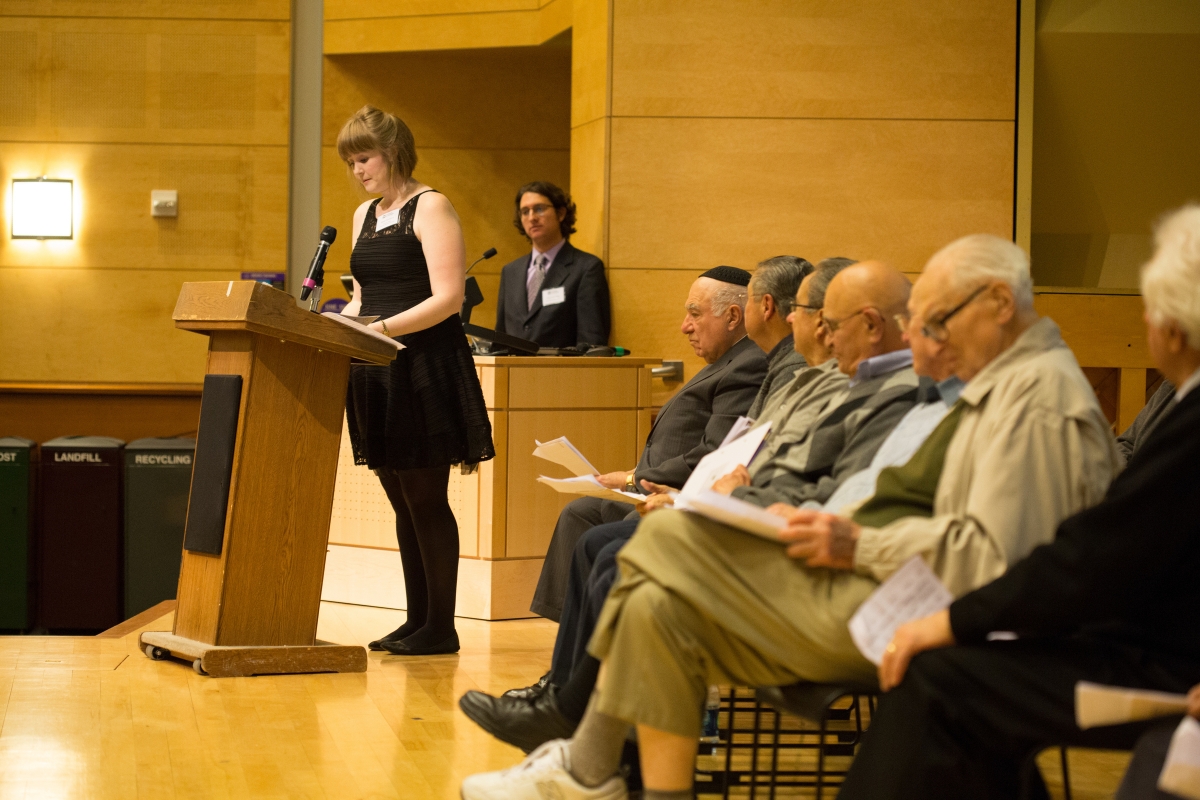
PhD student Molly FitzMorris takes the stage with Prof. Devin Naar and the Seattle Ladineros at Ladino Day 2014. Photo by Meryl Schenker Photography.
By Molly FitzMorris
It’s a question I get asked on a regular basis: how did I end up studying a dying Jewish language? Like many scholars in the field of Jewish Studies, as I’ve recently come to learn, it was totally by accident. While working on my master’s thesis in Hispanic Studies, I decided I wanted to work with people instead of books. And now, a year and a half after meeting a wonderful group of people called the “Ladineros,” I find myself in a doctoral program in linguistics, where my main research goal is to document the endangered heritage language of many Sephardic Jews, Ladino.
I think most linguists would agree that Ladino and other mixed languages provide a particularly fascinating topic of study; all languages undergo some form of gradual evolution, but it’s rare that you can see contact between cultures evident in the grammatical patterns of a language. An extremely common phrase, mersi muncho, or “thank you very much,” provides an excellent example of this, illustrating just how much influence French culture and the Alliance Israélite Universelle had on Ladino, as mersi comes from French and muncho from Castilian.
And yet, it seems like many Jewish Studies scholars have personal ties to Judaism or Jewish culture, and, as I have neither, it may seem odd that out of all the interesting languages in the world to study, I chose this one. But, over the past year and a half, I’ve grown to love the speakers of the language as much as I love the language itself. Studying Ladino and its speech communities has given me the opportunity to learn about Jewish culture directly from the people who live it.
The Ladineros and many other Ladino speakers in Seattle have been very patient and generous with their time in teaching me about their language and culture, so one of my top priorities since beginning to study Ladino has been to give back to the Seattle Ladino speech community. One of the ways in which I’ve been able to do this is to help to organize the 2014 and 2013 International Ladino Day celebrations in Seattle. Last year’s celebration, which packed Hillel UW with more than 300 people, provided me an excellent reminder of just how wonderful Seattle’s Ladino speech community is, and yet, this year’s celebration, which was attended by over 400 people, somehow managed to one-up 2013.
There was no official theme of this year’s Ladino Day celebration, but it is probably clear to anyone who attended that the theme of the evening was optimism for the future. Not only did the event showcase elementary school students and other youths engaging with Ladino, but it also included Sephardic Studies Chair Prof. Devin Naar’s revealing of the news that next year, the University of Washington will offer courses in introductory Ladino once again. Uttered at least three times by my count that evening was the Ladino proverb El kerer es poder, “Where there’s a will, there’s a way,” which seems to me a perfectly succinct description of the Seattle Ladino speech community’s attitude toward the language.
Thanks to my Jewish Studies Graduate Fellowship, I am writing this post from Buenos Aires, Argentina, where I am currently researching the Ladino that was and is spoken in this city. It may sound odd that I would come to Buenos Aires if my main focus is Seattle Ladino, but studying a new speech community will ultimately help me to understand Seattle better, especially which characteristics of the Seattle community are unique and which are characteristic of Ladino speech communities around the world. My research in Buenos Aires will also help me to shed light on a question I’ve been wondering about since the first time I ever heard Ladino spoken: To what extent is Ladino Spanish? Studying Ladino in contact with a dialect of Spanish (as opposed to English in Seattle) will help me to better understand the relationship between the two languages.
For now, I’m off to conduct some interviews here in Argentina. I look forward to sharing my findings at the Jewish Studies Spring Research Symposium in May.
 Molly FitzMorris is the I. Mervin and Georgiana Gorasht Scholar for 2014-15. She is a first-year PhD student in the Department of Linguistics. She completed her MA thesis, “The Last Generation of Native Ladino Speakers? Judeo-Spanish and the Sephardic Community in Seattle,” at the University of Washington in the spring of 2014, and she will continue to focus on Seattle Ladino for her doctoral research. Molly helped to organize the first and second International Ladino Day celebrations in Seattle. For her Jewish Studies Graduate Fellowship project, she plans to expand her work with the Ladineros, the members of a unique Ladino conversation class in Seattle, and to study the Ladino of Buenos Aires, Argentina, in order to gain a better understanding of the state of the language today.
Molly FitzMorris is the I. Mervin and Georgiana Gorasht Scholar for 2014-15. She is a first-year PhD student in the Department of Linguistics. She completed her MA thesis, “The Last Generation of Native Ladino Speakers? Judeo-Spanish and the Sephardic Community in Seattle,” at the University of Washington in the spring of 2014, and she will continue to focus on Seattle Ladino for her doctoral research. Molly helped to organize the first and second International Ladino Day celebrations in Seattle. For her Jewish Studies Graduate Fellowship project, she plans to expand her work with the Ladineros, the members of a unique Ladino conversation class in Seattle, and to study the Ladino of Buenos Aires, Argentina, in order to gain a better understanding of the state of the language today.


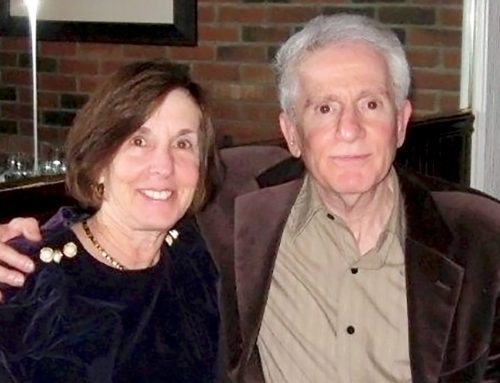
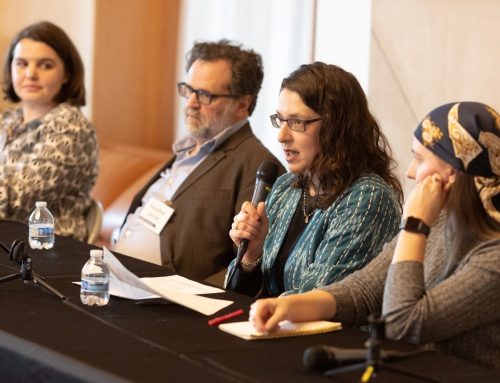
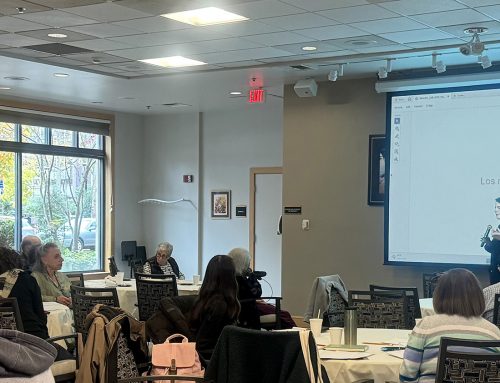
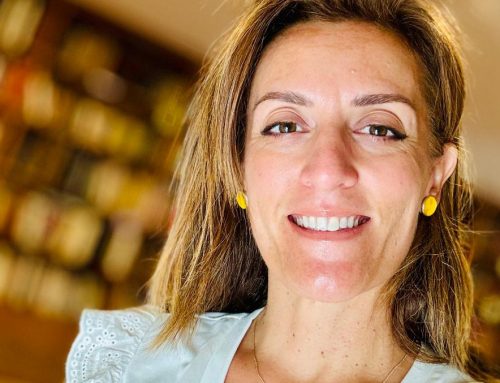
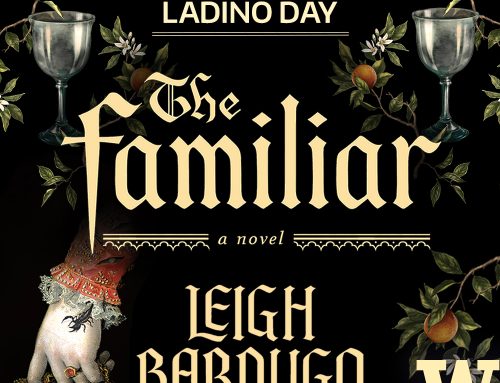
I have a great interest in this subject. A few years ago I wrote a book about the Cripto-Jews in Costa Rica. During my research for the book found that Costa Ricans used many terms considered Ladino words, among them was the ending of words in tico like chiquito we use chiquitico, due to this we are call Ticos. The Latin Americans refers to us as Los Ticos or Ticas.. Also they call us the Argentinians of Central America for the use of vos instead of the tu. Thank you for your research and I would be very interested to hear about your findings.
Dearest Molly: I have so much love, admiration and respect for you, from your genuine caring, scholarship and understanding of our precious language, customs and heritage. You are a true and rare scholar of note that we are so proud of for all that you do to make many of us even more proud of who we are and why we are such a special breed of Sepharadim. The time effort and energy you have put in to meet with our Ladineros to learn from them weekly, is exemplary. What you have done to bring our first and second years of International Ladino Day to our Seattle Community has been a marvel, as I have watched you in action performing all of the myriad of details to make those two events come to fruition. You are my hero for so many reasons and you make me smile, just knowing you and for your depth of caring and compassion for our Sephardic Community. Kon muncho karinyoso. Sylvia Azose Angel